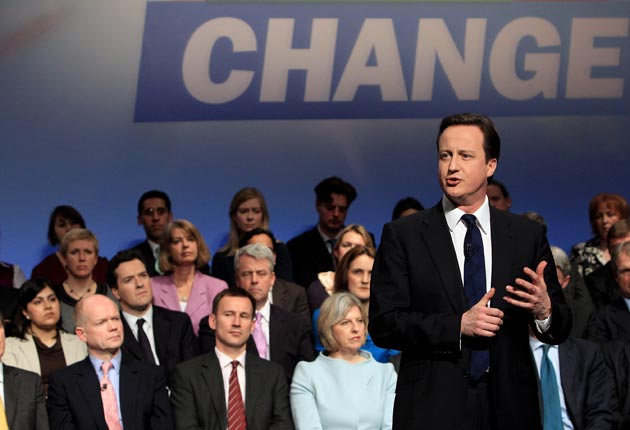Inheritance tax would be 'all but abolished'

Conservative plans to slash inheritance tax would effectively abolish the tax "for practical purposes", shows research by the leading accountants, Grant Thornton, for The Independent. In the proposals by the shadow chancellor George Osborne, unveiled in 2007, the threshold would be raised from the present £325,000 to £1m.
That means the yield would drop below £1bn – compared to £3.9bn taken in inheritance tax in 2007 – raising questions about where the Conservatives might make up the shortfall as they seek to tame the budget deficit run up by New Labour.
Last year, Kenneth Clarke, the shadow business spokesman and former Tory chancellor, said such concerns would leave the proposed cut as an "aspiration". But a poll of Tory candidates suggests there is still much pressure to deliver the pledge early in the life of a Cameron government.
Both the present arrangements and the Osborne plan permit the transfer of a spouse's allowance on their death, making a combined threshold of £650,000 (under the present rules) or £2m (under Osborne). But at £2m, the number of estates affected plummets to perhaps 3,000 a year, and the very rich tend to be able to plan their tax affairs to avoid the levy completely.
Mike Warburton, the director of entrepreneurial services at Grant Thornton, said: "For all practical purposes, inheritance tax would be abolished under Mr Osborne's proposals. Whichever way you look at it, they would make inheritance tax a tax on the rich rather than on the mass affluent."
In the last year for which there was detailed information, 2006-07, there were 49,782 estates worth more than £300,000, but only 5,009 above £1m. Mr Warburton added: "If there were only 5,000 or so deaths with estates over £1m, and 35 per cent of these had a spouse exemption available, it means that with an incoming Conservative government and with a £1m transferable threshold, only about 3,000 estates would be caught for inheritance tax."
The take from inheritance tax peaked in 2007 at £3.9bn, but has been falling in any case, thanks to Chancellor Alistair Darling's decision to raise the threshold shortly after Mr Osborne's announcement, widely credited with derailing plans by Gordon Brown for an early election in the autumn of 2007, the "election that never was". Depressed stock markets and the slide in property prices in 2008 have also reduced revenues.
Contrary to the image sometimes conjured up, death duties, the precursor to inheritance tax, were once paid by a much larger slice of the population than is now liable for inheritance tax. The earliest records, going back to 1939, show that about 30 per cent of the relevant population were caught in the death duties net.
Mr Warburton said: "We now have the rather surprising statistic that, in the 12th year of Labour, we have the smallest number of families caught for inheritance tax and its predecessor taxes since records started 70 years ago."
Join our commenting forum
Join thought-provoking conversations, follow other Independent readers and see their replies
Comments
Bookmark popover
Removed from bookmarks